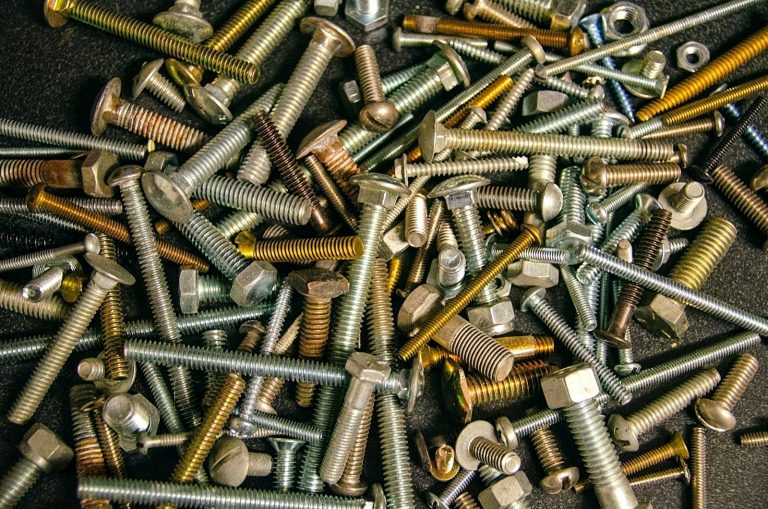Ensuring the safety and stability of structures is of the utmost importance in construction projects. One crucial aspect of achieving this is properly installing and tightening construction bolts. Whether you’re a seasoned professional or a DIY enthusiast, understanding the correct techniques for securing these bolts is vital to preventing accidents or structural failures. In this post, we will provide a comprehensive guide on installing and tightening construction bolts properly, ensuring the long-lasting integrity of your building projects.
Selecting the Right Bolt
Before starting the installation process, it is essential to choose the correct bolt for your specific application. Your choice ofthe bolt, whether it’s a hex head bolt, anchor bolt, carriage bolt, or eye bolt, will have a significant impact on the safety and stability of your structure. Consider load capacity, corrosion resistance, and environmental conditions to make a confident and informed decision.
Inspecting the Bolt
Inspecting the quality of a bolt before installation guarantees its effectiveness and longevity in use. Look for any deformations, cracks, or corrosion that might compromise its performance under pressure. Additionally, ensure that threads are clean from debris or contaminants that can hinder proper tightening.
Preparing Holes for Installation
For effective bolt installation in concrete or masonry surfaces, you must prepare accurate holes using electric drills fitted with appropriate masonry bits. The hole diameter should accommodate the bolt’s diameter plus adequate clearance space for proper insertion. Make sure to adequately clean debris from drilling operations before inserting the bolt.
Inserting the Bolt Properly
Start by placing anchors for added stability before inserting your construction bolt into positions that secure loads or attach components across various surfaces. If available, always follow engineering drawings while aligning holes before securely inserting each bolt.
Proper Torquing of Bolts
After the initial hand tightening, applying proper torque to each bolt for adequate tensioning is crucial. An under-torqued bolt may result in excessive load on other bolts or joints, while an over-torqued bolt can lead to material failure or thread-stripping. Follow manufacturer-specified torque values using an appropriate torque wrench for accurate and consistent tightening across all bolts.
Employing Cross-Pattern Torque Sequencing
When tightening multiple bolts within a joint, always employ a cross-pattern torque sequencing technique instead of following a sequential order—i.e., working from one end to another consecutively. This technique prevents uneven loads on the joint, ensures an even distribution of forces, and prevents any potential warping or distortion. Not following this technique could lead to uneven stress distribution, potentially causing joint failure or structural instability.
Retightening Bolts After the Settling Process
In cases where settling occurs over time due to building loads or environmental factors, it is necessary to recheck and retighten construction bolts periodically. This regular maintenance, following the sequence mentioned previously and considering the recommended torque values, is a crucial step in ensuring the long-term stability and safety of your construction projects.
Record-Keeping and Maintenance
Maintaining comprehensive records of bolt installation, torque values used, and periodic inspections is essential to reinforce safety and accountability. These records help identify patterns if issues arise later and provide crucial information for subsequent maintenance tasks.
Use of Locking Mechanisms for Enhanced Security
Depending on the application, especially in situations where vibration or movement is common, it’s essential to consider using locking mechanisms to ensure bolts remain securely tightened. Techniques like double-nutting or lock washers, adhesive patches, or thread-locking compounds can help prevent unintended bolt loosening. Double-nutting involves using two nuts tightened against each other to prevent loosening. Lock washers provide a spring-like tension to prevent loosening. Adhesive patches and thread-locking compounds create a bond between the bolt and the surface, preventing movement.
Seek Professional Consultation for Complex Installations
In particular, for construction projects involving intricate structural designs and critical load-bearing components, seeking professional consultation from engineers or contractors specializing in bolt installation is not just a suggestion, but a necessity. Their expertise ensures adherence to industry standards and best practices, providing you with the support and guidance you need for your specific project requirements.
Safety Precautions During Bolt Installation
Prioritizing safety during bolt installation is crucial to avoid accidents and minimize risks on construction sites. Workers should wear appropriate personal protective equipment (PPE), including gloves and eye protection. Additionally, establish a safe working environment by removing any potential hazards, such as loose debris, slippery surfaces, or unstable structures, before starting the installation process.
Conclusion
Proper installation and tightening techniques play a fundamental role in ensuring the integrity and longevity of construction projects. Selecting the right bolt, inspecting its quality, preparing holes accurately, inserting it correctly into position, torquing it properly with recommended values across a cross-pattern sequence tightening method, and regular maintenance checks establish strong foundations that stand the test of time.

0 Comments